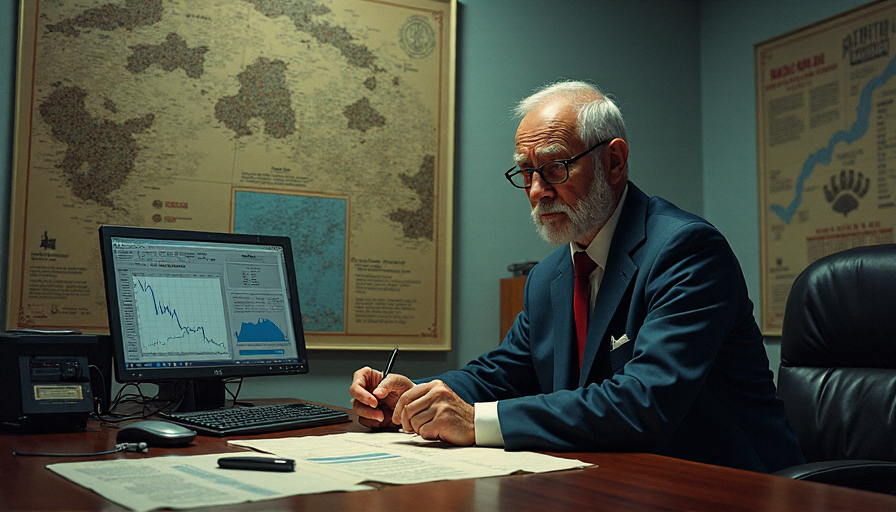
The Enduring Power of Politics in Modern Warfare: Clausewitz's Timeless Insight
In an era dominated by artificial intelligence and cutting-edge weaponry, the enduring wisdom of military strategist Carl von Clausewitz remains strikingly relevant. Despite the promises of precision targeting and high-tech battle strategies, history shows that politics and the human element continue to steer the outcome of wars.
Technology's Shifting Edge
Throughout history, new weapons—from chariots and catapults to tanks and hypersonic missiles—have often been heralded as revolutionary. For instance, the Battle of Omdurman in 1898 showcased the Maxim gun's devastating impact, where a British-led force decimated thousands of Sudanese with minimal casualties. However, similar to many technological marvels, the initial edge provided by the innovation soon diminished as adversaries adapted quickly.
Today, advanced systems like artificial intelligence, robotics, and space-based command networks hold unprecedented capabilities. Yet in contemporary conflicts like those in the Middle East and Ukraine, even these state-of-the-art systems have secured only fleeting tactical victories. They exemplify a recurring truth: while technology may win battles, it does not necessarily win wars.
The Lesson from Clausewitz
More than two centuries after his time, Clausewitz’s fundamental declaration endures: "War is the continuation of politics by other means." This statement underlines a critical distinction—military might and advanced hardware are tools meant to coerce an opponent into submission. History is full of instances where overwhelming firepower or futuristic technology failed to break a determined enemy will.
Real-World Reflections
Consider the conflicts involving Israel and Hamas. Despite employing sophisticated AI for targeted operations, the Israeli Defense Forces (IDF) struggled to predict and neutralize unexpected tactics, such as surprise attacks. Even in scenarios where technology decimated enemy leadership structures, like in Hezbollah, the prolonged, unit-by-unit fighting underscored that technological superiority does not equate to political domination. Hamas, leveraging the political terrain and public sentiment alongside its guerrilla strategies, turned widespread civilian outrage into a strategic asset, challenging the might of the IDF on more than one front.
In Ukraine, the situation mirrors this dynamic in a different setting. Despite it being a classic interstate conflict, the Ukrainian struggle against Russian aggression reveals that precision munitions and space intelligence are often outmatched by sheer force and domestic politics. Political decisions—ranging from international diplomatic pressures to internal public debates—significantly affect military maneuvers, as seen in the hesitations of Western allies and politically motivated interventions.
The Political Battlefield
Historical insights have demonstrated that the true lever of war is political will, not merely technological advancement. Modern warfare not only grapples with enemy combatants but also with domestic pressures, global alliances, and political negotiations. Leaders in democratic nations face the burden of public scrutiny and accountability, which can sometimes impede decisive military action. The Israeli case, where high-tech military operations were constrained by the constant clamor of public opinion, and Ukraine’s experience with fluctuating support from international allies, are prime examples.
Political clout ultimately shapes outcomes more than tactical superiority ever could. As Clausewitz might argue today, any technological advance—from cyber warfare to quantum computing—will always be secondary to the political currents steering international relations. Strategic victories depend heavily on the ability to influence political narratives, rally public sentiment, and secure unwavering diplomatic support.
Looking Ahead
The contemporary landscape teaches a timeless lesson: the tools of war, no matter how advanced, are only as potent as the political will driving them. Future conflicts will continually be defined not by the brilliance of algorithms or the precision of drones, but by the ability of nations to navigate and control the political narrative. This reminder stands as a testament to Clausewitz’s insight into the human element of war.
Ultimately, history and current events confirm that modern military marvels have not resolved the age-old dilemma—winning a war requires more than just technological supremacy; it demands a deep-rooted, resolute political strategy.
Conclusion
In the final analysis, the art of war remains as much about persuasion and political maneuvering as it is about artillery and advanced weaponry. No matter how much technology evolves, decisive victories will always hinge on breaking the enemy’s will through political means. As the tactical advantages of AI and space assets continue to develop, the crucial lesson remains: in warfare, politics is mightier than the sword.
Note: This publication was rewritten using AI. The content was based on the original source linked above.